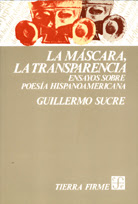The technical drawing is the discipline that serves as a means of expression to the geometry, and design projects in general, in all branches of engineering. For this reason, it is of paramount importance the proper handling of instrumental and basic procedures of the path to achieve results of acceptable quality, as if the performer is not hard at acquiring the relevant technical, you always get mediocre results, even when it has a broad domain in the theoretical part.
minimum tools necessary for the implementation of the work covered by that branch of knowledge are: pencils, eraser, ruler in millimeters Square, Bevel, precision compass, erasing, pencil sharpener or sharpening white paper mines and base 20.
Pencil
For technical drawing is preferred to use wooden pencils with graphite core, while it is true that there
semi pens or pencils, which have the advantage without the use of pencil sharpeners. According to the hardness special pencils for drawing are classified by letters and numbers. The series H (English hard) runs from H to 8H and falls hard pencils and therefore a finer line, number accompanying the letter indicates the degree of hardness: the higher the number the greater the hardness. Series B (black English) is composed
soft lead pencils, 7B being the softest and therefore produces a very thick line inappropriate for technical drawing. The pencil F (English firm) is unique and has a hardness intermediate between the two previous series. The same applies to the HB pencil.
In making drawings of a technical nature is advised to use F or HB pencils, H, 4H and 2H, due to the thickness of the lines used, which is regulated by international standards (ISO).
It should be kept very sharp pencil point in order to obtain a clear path, smooth and precise for all types of lines. The recommended technique involves holding the pen firmly, keeping constant pressure on the instrument (ruler, square, or template) by twirling the tip as you draw the line. Care should be taken to maintain an angle of about 60 ° between the pencil and paper path direction.
The

compass is a precision instrument with which to draw arcs and take and copy distances. Of the various types of bar existing preferred use of mustache (Fig. A.1) due to their small size and low cost. The arms of this type of approach and bar are separated by the action of an adjusting screw, which translates into jobs with good accuracy.
compass needles have two points, one of which is thin and with a broadening that prevents deeper penetration, thus preventing the hole in the paper is of great dimensions. Some models have a medium which can be set pencils, being the most recommended for its versatility.
For best results we recommend the following procedure when drawing arcs of circumference
: First dial the center by two strokes, one vertical and one horizontal, like a cross. Then the radius is measured from the mark using a ruler, pointing to a very soft mark. Then place the tip into the center of the arc and opens until reaching the milestone of radio, then by holding the compass by turning the handle with your index finger and thumb. This movement should preferably be clockwise and slightly tilting the instrument.

The square and bevel
These instruments used in drawing straight lines parallel, perpendicular and oblique to 30 º, 60 º 15 º and 75 º (Fig. A.2) and triangle shaped. The legs of the square have equal length because they form 45 th to the hypotenuse, in the bevel, the legs and the hypotenuse forming angles of 30 º and 60 º, so they have different lengths. These instruments are used to support them on each other, using one as a mobile element. The use of the rule T is omitted in this work, because the drawings executed in descriptive geometry have small dimensions.
Title: GENERAL IN THE STUDY OF DOUBLE SCREENING ORTHOGONAL.
Author: Jorge Luis Calderon Salcedo












